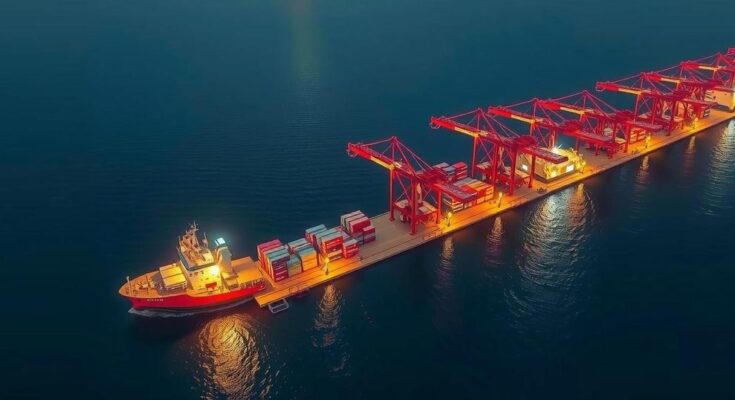Sudan’s government has annulled a $6 billion deal with the UAE to build a Red Sea port, accusing Abu Dhabi of supporting paramilitary forces in the Sudanese conflict. Minister Jibreel Ibrahim asserted that they will not allow UAE interests in the region, leading to the decision to repeal the agreement which included significant infrastructure investment. The World Bank is also set to provide a $300 million grant to Sudan before 2025.
The Sudanese government has officially annulled a $6 billion agreement with the United Arab Emirates (UAE) to construct a port along the Red Sea coast, as reported by Minister of Finance Jibreel Ibrahim. This decision follows allegations stating that the UAE has been supporting the paramilitary Rapid Support Forces (RSF) in their conflict with the Sudanese Armed Forces (SAF). Minister Ibrahim emphatically declared, “We will not give the UAE a centimeter on the Red Sea Coast after what had happened.” The projected Abu Amama port was intended to be built 200 kilometers north of Port Sudan and was set to feature an industrial zone, an international airport, and an agricultural zone. Additionally, a substantial $300 million deposit was to be made to the Sudan Central Bank. In related news, the World Bank is expected to provide Sudan with a $300 million grant before June 2025.
The decision by Sudan to cancel the port agreement with the UAE underscores the increasing tensions between Sudanese authorities and foreign partnerships amid ongoing internal conflicts. The deal, signed in December 2022, involved a consortium led by the UAE’s AD Ports Group and Sudanese investor Osama Daoud Abdellatif. The intended port aimed to enhance regional trade capacity and included significant investments. However, the political climate, dominated by the conflict between the SAF and RSF, has altered priorities, leading to a reassessment of foreign investments.
The cancellation of the port project illustrates the complex interplay of foreign relations and internal strife in Sudan. With external support now viewed with caution due to geopolitical implications, the Sudanese government is prioritizing sovereignty and stability. Additionally, the upcoming grant from the World Bank suggests a potential pivot towards international financial support rather than partnerships that could exacerbate conflict.
Original Source: www.altaghyeer.info




